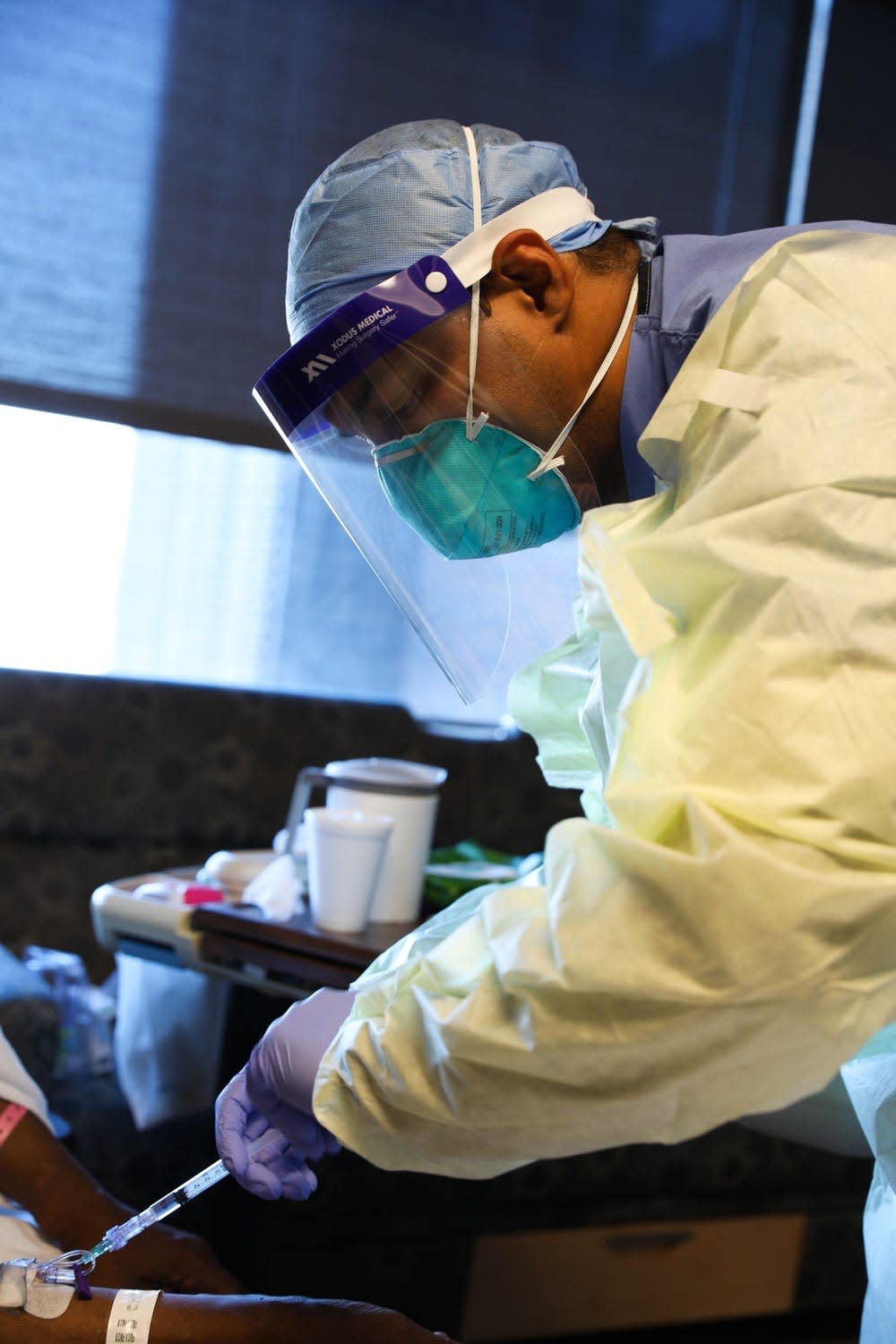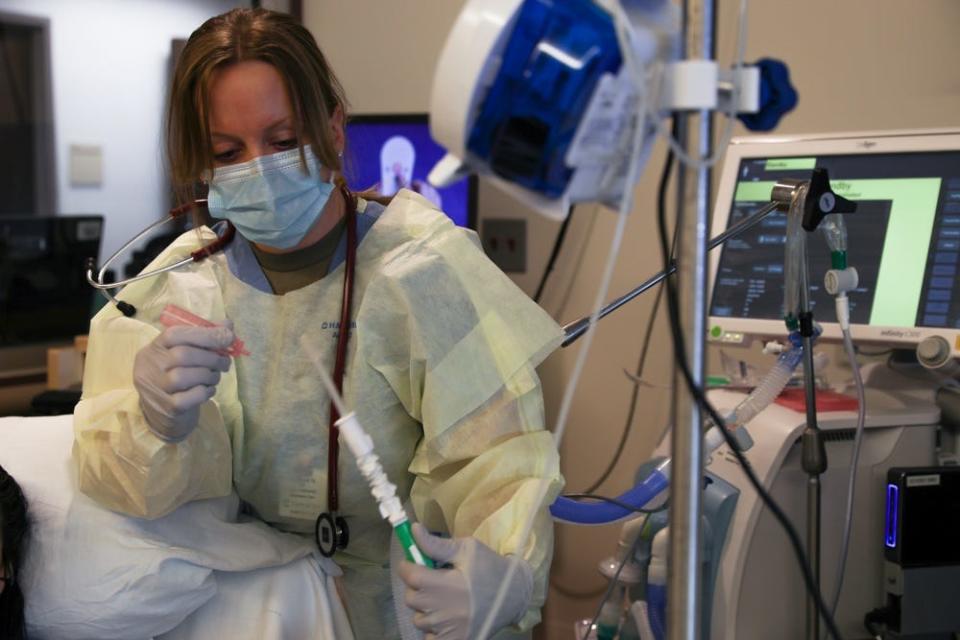COVID cases high but manageable at CentraCare; experts say expect few more weeks of surge

ST. CLOUD — Although the rate of new COVID-19 cases of remains high in the St. Cloud area, Minnesota is expected to see improvement in the next two to three weeks, said Dr. George Morris, CentraCare's incident commander for COVID-19.
St. Cloud Hospital's intensive care unit is still over capacity, but where in the past the ICU was 130%-140% full, it's now closer to 110% full, Morris said. With fewer employees out sick recently, he said staff have been able to manage the elevated patient loads.
As of Wednesday night there were 104 COVID patients hospitalized at CentraCare hospitals, 90 of them at St. Cloud Hospital. 30% of those patients were vaccinated, Morris said.
Morris said mortality from COVID-19 is still high; the Minnesota Department of Health continues to report around 30-50 COVID deaths a day.
That being said, "we can see the light at the end of the tunnel, but it'll take us a couple weeks to get there," he said.
More: Mask mandate debate divides St. Cloud City Council members
"We still are offering that hope with a sense of reality where we know what's coming, we just need to kind of hold on for two to three more weeks," Morris said. "And I feel that will kind of get through the height of this. And even after that, there'll be some cases but it will be much more … manageable, where we just treat it like other respiratory illnesses."

More: Federal medical response team leaving St. Cloud Hospital on Friday
Morris said it's hard pinpoint when omicron cases will peak; "we won't know the peak until we're past it."
Looking at one to two day case trends doesn't always describe the full picture, and he said "the peak" isn't going to look the same for each city, county or community.
"But certainly, I think this window between this week and next week — so, last week of January, first week of February — that's kind of where I think we're going to have our peak," Morris said.
As cases trend downward, however, Morris said we still need to be vigilant to keep that trend down.
"That's kind of why we still need to watch our behaviors, wear your mask indoors, get vaccinated, get boosted and try to stay home if you're sick," he said. "We know the (quarantine) guidelines are only five days. But even after five days if you're going out, wear a mask — a well-fitting medical grade mask or an N-95. And the purpose of them is even after five days you're still set shedding some virus, it's just not the large amounts that you're doing those first five days."
Becca Most is a cities reporter with the St. Cloud Times. Reach her at 320-241-8213 or bmost@stcloudtimes.com. Follow her on Twitter at @becca_most.
Support local journalism. Subscribe to sctimes.com today.
This article originally appeared on St. Cloud Times: COVID cases high but manageable at CentraCare, peak ending soon

